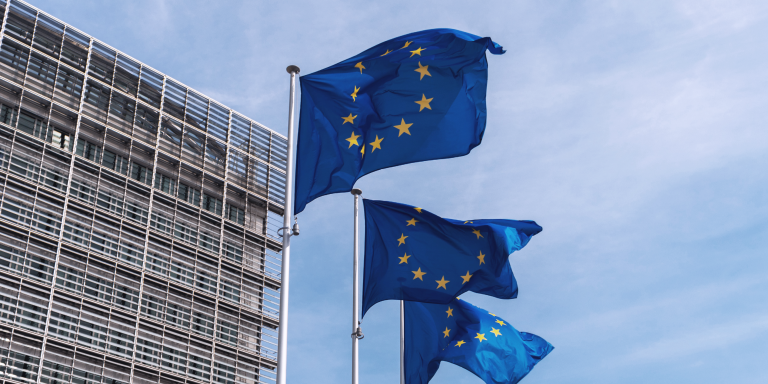
This Wednesday, February 23, the European Commission adopted the proposal for new rules on fair access to and use of data, otherwise known as the Data Act. While the Data Governance Regulation, presented in November 2020 and approved a year later, creates the processes and structures to facilitate data sharing by businesses, individuals and the public sector, the Data Regulation clarifies who can create value from data, and under what conditions. The data regulation is subject to an open public consultation between June 3 and September 3, 2021.
These new rules will clarify who can use and access data generated in the EU in all economic sectors. The objectives of the data regulation are to:
- Ensure fairness in the digital environment,
- stimulate the development of a competitive data market.
This should enable new innovative services to emerge and after-sales and repair services for connected objects to be more competitive. This last cross-cutting element of the Commission’s data strategy will play a key role in the digital transformation, in line with the 2030 digital goals. Margrethe Vestager, executive vice president for a digitally fit Europe, said:
“We want to give consumers and businesses more control over what can be done with their data, by clarifying who can access it and under what conditions. This is a key digital principle that will help create a robust and fair data economy and guide the digital transformation between now and 2030.”
Thierry Breton, Internal Market Commissioner, added:
“An important step is being taken today to open up access to a wealth of industrial data in Europe, to the benefit of businesses, consumers, public services and society as a whole. Until now, only a small part of industrial data is used and the potential for growth and innovation is enormous. Thanks to the Data Regulation, industrial data will be shared, stored and processed in full compliance with European rules. The regulation will be the cornerstone of a strong, innovative and sovereign European digital economy.”
Many people can access data without affecting its quality or quantity. The volume of data is steadily increasing and is expected to grow from 33 zettabytes in 2018 to 175 zettabytes in 2025. This is untapped potential, with 80% of industrial data never being used. The data regulation addresses the legal, economic and technical issues that cause data to be underutilized. The new rules will increase the amount of data available for re-use and are expected to generate €270 billion in additional GDP by 2028.
The proposed data regulation includes:
- Measures to allow users of connected devices to access the data they generate (data that is often collected exclusively by manufacturers), and to share that data with third parties for the purpose of providing after-sales or other innovative data-driven services. The proposed regulation maintains the incentive for manufacturers to continue to invest in the production of high-quality data, covering their costs associated with the transfer and excluding the use of shared data in direct competition with their product.
- rebalance the bargaining power of SMEs by preventing excessive contractual imbalances in data sharing contracts. The Data Regulation will protect SMEs from unfair contract terms imposed by a party with significantly greater bargaining power. The Commission will also develop model contractual clauses to help these businesses draft and negotiate fair data sharing contracts.
- Means for public sector agencies to access and use data held by the private sector that are necessary to address exceptional circumstances, such as public emergencies (e.g., floods, forest fires), or to carry out a legal mandate if the data are not otherwise made available. Data must be available to respond quickly and securely, while minimizing the burden on businesses.
- New rules that allow customers to efficiently switch cloud data processing service providers and put safeguards in place against unlawful data transfers.
The Data Regulation also revises certain aspects of the Database Directive, which was adopted in the 1990s to protect investments in the structured presentation of data. This will make it possible to access and use databases containing data from Internet of Things devices and objects.
Consumers and businesses will be able to access and use their device data for after-sales service and value-added services such as predictive maintenance. With more information at their disposal, consumers and users such as farmers, airlines or construction companies will be able to make better decisions, such as buying better or more sustainable products and services, thus contributing to the goals of the green pact.
Companies and industry players will have a wider range of data at their disposal and will benefit from a competitive data market. Service providers will be able to offer more personalized services and compete on a level playing field with comparable services offered by manufacturers. It will also be possible to combine data to develop entirely new digital services.
The Commission has also published an inventory of European Common Data Spaces being developed in different sectors and areas.
Translated from Loi sur les données : la Commission Européenne propose des mesures pour une économie des données équitable et innovante









